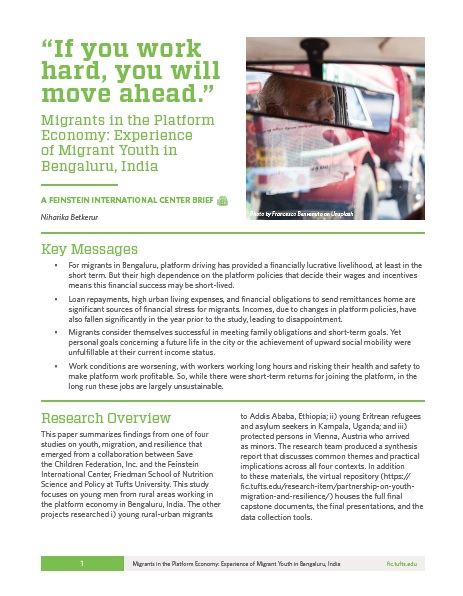This study focuses on the financial and social impact of rural-urban migration on young men engaged in the platform economy in Bengaluru, India. The study examines the experience of workers in app-based taxi services such as Uber and Ola. It aims to shed light on the livelihood strategies employed by these workers, the positive and negative aspects of platform driving, and how this livelihood strategy affects their feelings of success.
This research shows that platform driving has provided respondents with a financially lucrative livelihood, at least in the short term. Migrants also considered themselves somewhat successful in meeting family obligations and short-term goals. However, the shifting platform policies that determine their wages often make success short-lived and ever more difficult to achieve. Incomes fell significantly in the year prior to data collection, leading to disappointment on the part the respondents. The decrease in income exacerbated the stress of loan repayments and high living and work expenses. Participants reported worsening work conditions with long hours and health and safety risks which they undertook in an effort to make platform work profitable. While there were short-term returns for joining the platform, in the long run these jobs seemed unsustainable.
The capstone based on this study is available here.
Follow the links for the qualitative and quantitative instruments.







